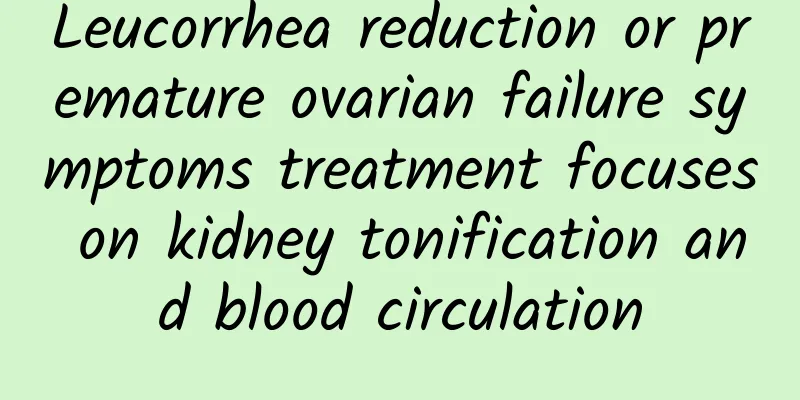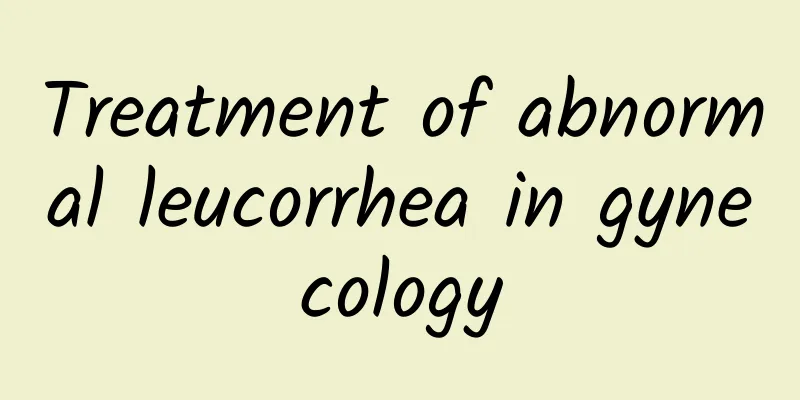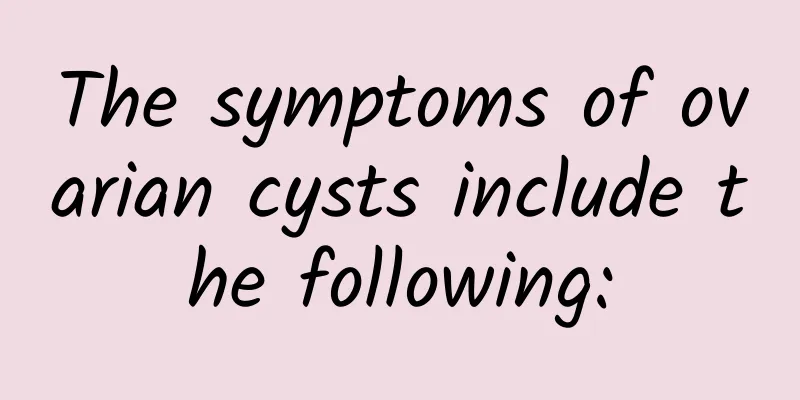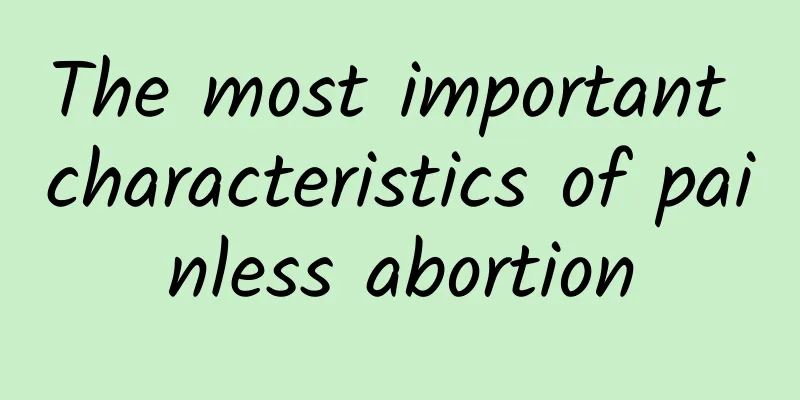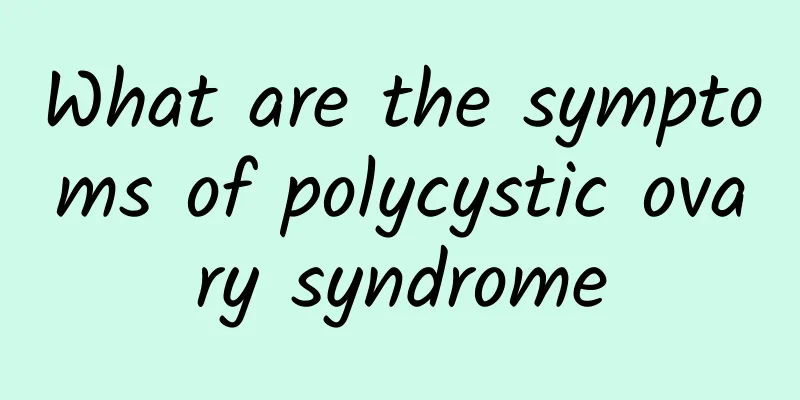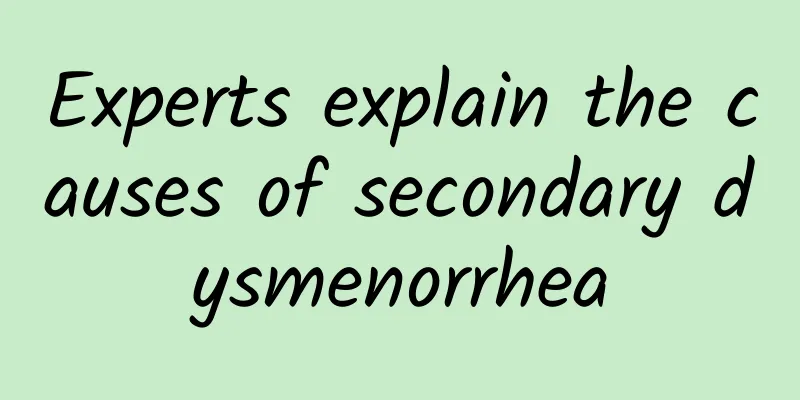Will ovarian cysts disappear on their own after menopause? How to treat them?
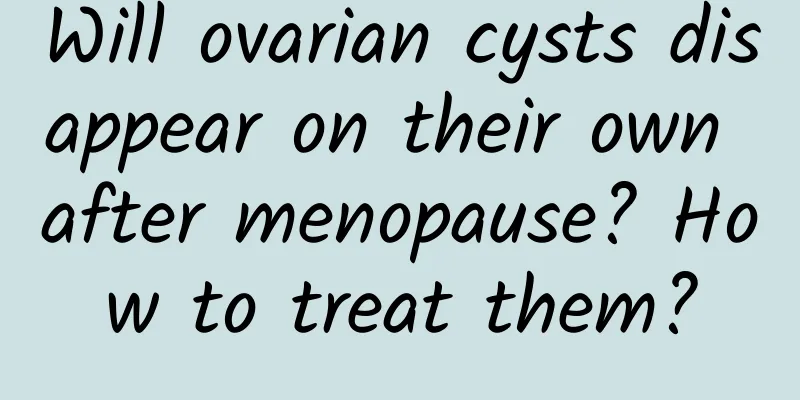
|
Whether or not an ovarian cyst will disappear on its own after menopause depends largely on the type of cyst. Physiological cysts may disappear, while pathological cysts usually require treatment. 1. Physiological ovarian cysts: These cysts, such as corpus luteum cysts, tend to disappear on their own after menopause. In this case, no special treatment is usually required, just regular monitoring. This is just like in our daily life, sometimes there are some minor problems in the body, but after a period of time, they will disappear on their own. 2. Pathological ovarian cysts: This type of cyst includes inflammatory cysts and cysts caused by endometriosis. Chocolate cysts caused by endometriosis may shrink or even disappear after menopause, but inflammatory cysts require active treatment. Doctors may recommend antibiotics, such as cephalosporins, combined with metronidazole or tinidazole for treatment. If the cysts still exist after the inflammation subsides, physical therapy such as infrared therapy or acupuncture may help. Just like when we repair a machine, sometimes it takes a combination of methods to solve the problem. 3. Necessity of surgical treatment: If conservative treatment is ineffective and the cyst persists, surgical intervention may be required. Surgery is a more direct method that can completely solve the problem, but it should also be decided based on the doctor's advice. 4. Be alert to malignant cysts: Some cysts may recur and even have the risk of becoming malignant. For these cases, early detection and treatment are very important. Once it is confirmed that the cyst has a malignant tendency, surgery may be necessary, and comprehensive treatments such as radiotherapy and chemotherapy may be required after surgery. This is like finding a fire, putting it out in time can avoid a bigger fire. 5. Psychological adjustment and health monitoring: It is also important to maintain a good attitude when facing ovarian cysts. Regular physical examinations and follow-up can help to find problems in time and avoid unnecessary panic. Just like we regularly maintain our cars to ensure that they are always in good condition. The treatment of postmenopausal ovarian cysts needs to be combined with the type of cyst and the specific situation of the patient. Reasonable treatment and monitoring under the guidance of a doctor can help women better cope with this problem. Maintaining a positive attitude and a healthy lifestyle is not only responsible for your own body, but also improves the quality of life. |
<<: Can intrauterine adhesions be cured by taking medicine?
>>: Things to note after having an abortion
Recommend
Bacterial vaginosis check-up
How to check for bacterial vaginosis? Gram staini...
Can pelvic effusion heal on its own?
Because everyone has different living habits and ...
What are the symptoms of uterine fibroids?
Most patients with uterine fibroids will experien...
Dysfunctional uterine bleeding during menopause
Dysfunctional uterine bleeding during menopause r...
Can grapefruit help you lose weight? High-fat diet is more effective
Hollywood actress Kylie Minogue once used the gra...
What medicine is good for chocolate cyst
What medicine is good for chocolate cyst? Many pe...
Winter stew is a good time! A female Chinese medicine practitioner teaches you how to DIY herbal medicine
The weather in autumn and winter is unstable with...
What are the causes of irregular menstruation?
Irregular menstruation affects women's daily ...
Lower calories! 2 Light Rice Dumplings for a Refreshing Dragon Boat Festival
The Dragon Boat Festival is coming soon. The rice...
Is a hard lower abdomen a sign of uterine fibroids? What are the symptoms of uterine fibroids?
For middle-aged female friends, if you find that ...
What medicine should I take for right ovarian cyst
The treatment of right ovarian cysts needs to be ...
The most common symptoms of dysmenorrhea in life
Among the many gynecological diseases in women, d...
How much does an abortion cost?
How much does an artificial abortion cost? Artifi...
How harmful is cervicitis?
Gynecological diseases are a big trouble for fema...
Why is the vaginal discharge abnormal and bloody?
Abnormal vaginal discharge with blood may be caus...


